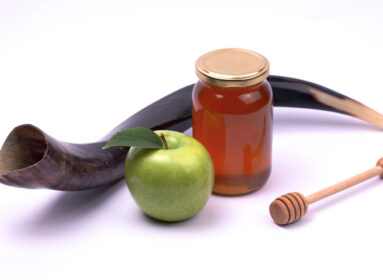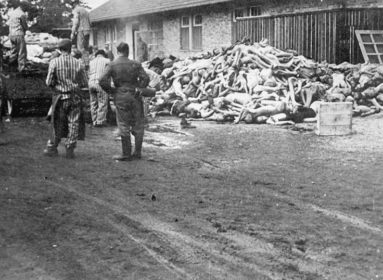By Paul Lewis ~
This is my first Father’s Day without a father. My dad died last month, just four days shy of his 87th birthday and seven years after my mother died. So now I’m an orphan.
I don’t feel qualified to be the oldest generation. It’s not false modesty to say I’ll never measure up to my old man in so many ways. He was a good and decent man — the ultimate mensch.
My dad was one of those people who truly loved life. With gusto. He was funny and sometimes goofy. One Passover, he rigged a life-size Elijah to drop down as the kids opened the door during the Seder. The kids screamed while he laughed until he turned red in the face. We retell that story as faithfully as we retell the Exodus from Egypt.
He had a penchant for bad puns, true groaners, the kind that embarrass a child. Now, every time I make a bad pun — which according to my kids is way too often — I blame, or give credit, to him. And when my kids make bad puns and goofy jokes — which I assure you is way too often — they, too, give Poppa credit for that.
As I think of my father on this Father’s Day, I think about the Hebrew word doogma, which means example. My dad was not exactly the talkative type, but he didn’t need words to teach. He was a doogma. His actions spoke louder than his words.
Like many of the Greatest Generation, my dad never talked about his army service, which included being part of the liberation force at Dachau and a commendation. His army experience left him jumpy at any sharp or unexpected sound, but still he was proud of his service.
Dad was a doogma in the ethical way he ran his business, dealing with difficult clients in a calm and gentle way.
Most of all, my dad was a doogma as a family man. He was a freely emotional, gentle, nurturing man who shared the household duties in a way that was unusual for his generation.
And what a husband he was! He used to joke that when they married, they agreed mom would make all the small decisions and dad would make all the big ones…and that he was still waiting for a big decision to be made.
The big decision was how he chose to live every day as a husband and father. He was totally devoted to my mom and so in love with her. He set an example any man could only aspire to emulate.
Dad taught us that family is the top priority. He went on Boy Scout hikes and built sets for drama group and so much more. He actually closed down his one-man business to take his family on a six-week cross-country camping trip.
A small memory says it all. I loved jumping in the car with Dad to get milk at the local convenience store, maybe because often we would sneak a secret ice cream. I remember Dad would just reach over to the passenger seat and put his big, powerful, calloused, workingman’s hand on mine. He wouldn’t say anything, just look at me and pat my hand.
He had the same look years later when we all gathered on Rosh Hashanah or Thanksgiving and all the kids and grandkids would be talking non-stop and laughing. Sometimes I caught him surveying the scene, just looking, not saying anything, smiling, happy, content and proud.
He was a great father, who delighted in all his children’s successes, in childhood and as adults. The only thing better were the successes of his grandchildren, who were an overwhelming source of great joy. I can only hope to be half as good a father.
So my sadness on this first Father’s Day without my father is overshadowed by my sense of gratitude. Thank you, Dad. Just thanks.
Paul Lewis is director of Community Development for the PJ Library program, which sends more than 100,000 Jewish books each month to children throughout North America. In the past, he has been a TV news reporter and executive. He lives in West Hartford with his wife and is the father of three grown daughters. He can be reached at: paulericlewis@gmail.com.
_______
Readers are invited to submit original work on a topic of their choosing to Kolot. Submissions should be sent to editorial@jewishledger.com







 Southern New England Jewish Ledger
Southern New England Jewish Ledger















